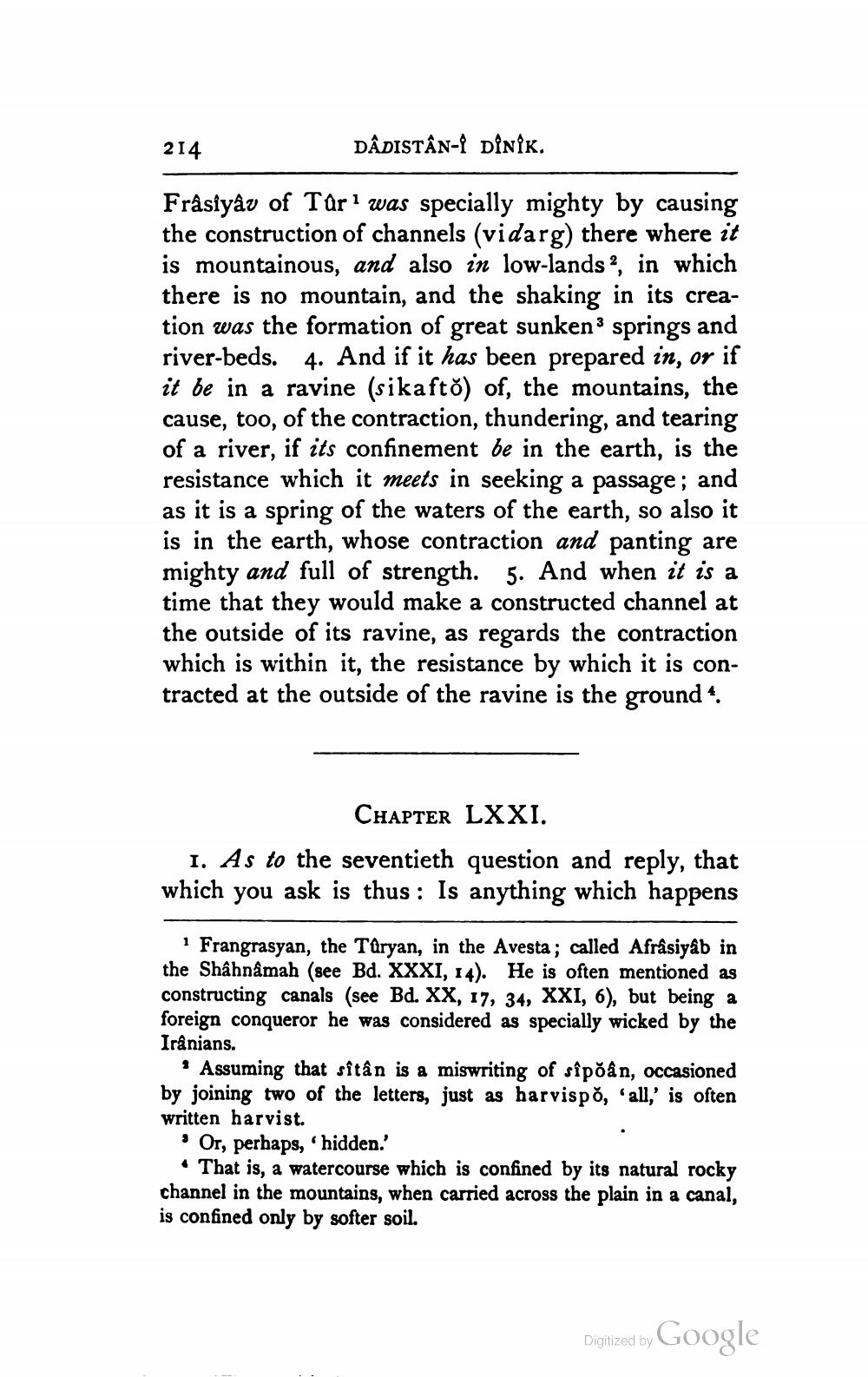________________
214
DÂDISTÂN-I Dinik.
Frasiyâv of Tar1 was specially mighty by causing the construction of channels (vidarg) there where it is mountainous, and also in low-lands?, in which there is no mountain, and the shaking in its creation was the formation of great sunken: springs and river-beds. 4. And if it has been prepared in, or if it be in a ravine (sikafto) of, the mountains, the cause, too, of the contraction, thundering, and tearing of a river, if its confinement be in the earth, is the resistance which it meets in seeking a passage; and as it is a spring of the waters of the earth, so also it is in the earth, whose contraction and panting are mighty and full of strength. 5. And when it is a time that they would make a constructed channel at the outside of its ravine, as regards the contraction which is within it, the resistance by which it is contracted at the outside of the ravine is the ground 4.
CHAPTER LXXI. 1. As to the seventieth question and reply, that which you ask is thus : Is anything which happens
Frangrasyan, the Täryan, in the Avesta; called Afrâsiyab in the Shâhnâmah (see Bd. XXXI, 14). He is often mentioned as constructing canals (see Bd. XX, 17, 34, XXI, 6), but being a foreign conqueror he was considered as specially wicked by the Irânians.
• Assuming that sitân is a miswriting of sîpoàn, occasioned by joining two of the letters, just as harvispo, all,' is often written harvist.
Or, perhaps,'hidden.' • That is, a watercourse which is confined by its natural rocky channel in the mountains, when carried across the plain in a canal, is confined only by softer soil.
Digiized by Google




